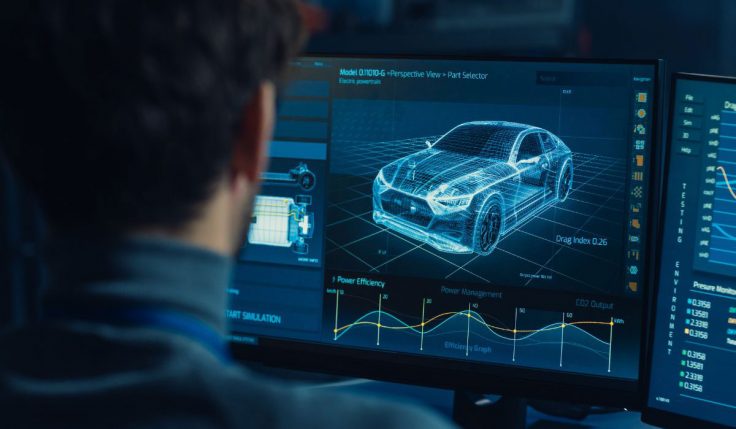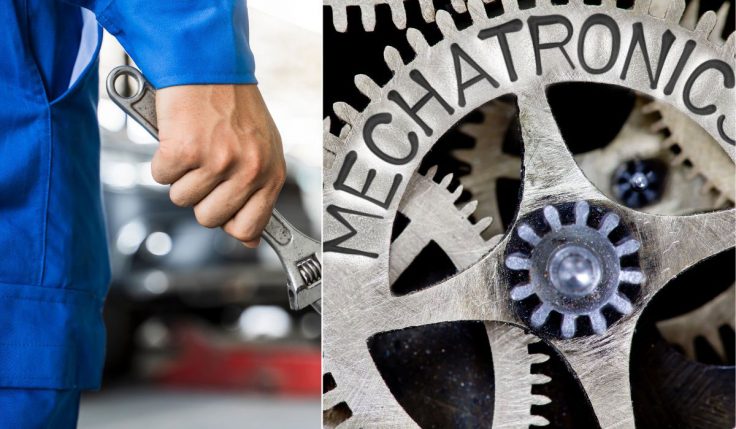As technological advancements continue to shape industries worldwide, the field of mechanical engineering stands at the forefront of innovation. Automation and robotics have revolutionized manufacturing processes, leading to increased efficiency, precision, and productivity. In this blog post, we will explore how the integration of automation and robotics is shaping the future of mechanical engineering education and why institutions are adapting their curricula to equip students with the skills and knowledge needed to thrive in this evolving landscape.
Embracing Automation and Robotics in the Curriculum
Mechanical engineering programs are incorporating courses and modules focused specifically on automation and robotics. These courses cover topics such as industrial automation, mechatronics, robot kinematics, programming, and control systems. By integrating these subjects into the curriculum, students gain a comprehensive understanding of the principles, technologies, and applications related to automation and robotics.
Hands-on Experience with Advanced Equipment
To provide practical exposure, educational institutions are investing in state-of-the-art laboratories and workshops equipped with advanced automation and robotics equipment. Students have the opportunity to work with industrial robots, programmable logic controllers (PLCs), computer-aided design (CAD) software, and simulation tools. This hands-on experience enables them to apply theoretical concepts, develop technical skills, and gain real-world insights into the operation and programming of automated systems.
Collaborations with Industry Leaders
To bridge the gap between academia and industry, institutions are fostering collaborations with leading companies in the automation and robotics sector. These partnerships provide students with exposure to cutting-edge technologies, industry trends, and practical applications. Guest lectures, industry visits, and internships offer invaluable insights into the challenges and opportunities present in the field. By engaging with industry leaders, students can develop a holistic understanding of automation and robotics within the context of real-world engineering practices.
Interdisciplinary Approach
Automation and robotics are not confined to the realm of mechanical engineering alone. Recognizing the interdisciplinary nature of these technologies, institutions are promoting cross-disciplinary collaborations. Collaborations with computer science, electrical engineering, and mechatronics departments allow students to gain a broader understanding of the integration of various technologies. This interdisciplinary approach fosters collaboration, innovation, and the development of holistic solutions to complex engineering challenges.
Specialized Programs
In response to the growing demand for expertise in automation and robotics, universities are offering specialized programs and graduate studies in the field. These programs optimize students’ existing qualifications, enabling them to enhance their skills and knowledge and accelerate their career prospects in these specialized fields. Such programs also prepare students for advanced research, development, and leadership roles in the automation industry.
Emphasizing Soft Skills and Adaptability
As automation and robotics continue to advance, the role of a mechanical engineer is evolving. In addition to technical skills, institutions are placing increased emphasis on developing soft skills such as communication, problem-solving, and adaptability. Mechanical engineers must collaborate with multidisciplinary teams, communicate effectively, and adapt to rapidly changing technologies. By integrating soft skills development into the curriculum, institutions ensure that graduates are well-rounded professionals capable of thriving in the automation and robotics industry.
Experiential Learning Opportunities
To enhance the learning experience, institutions are incorporating experiential learning opportunities into the mechanical engineering curriculum. Students have the chance to participate in projects, research initiatives, and competitions that involve automation and robotics. These hands-on experiences allow students to apply their knowledge, develop problem-solving skills, and gain practical insights into the challenges and complexities of working with automated systems.
Industry-Driven Capstone Projects
Many mechanical engineering programs include capstone projects where students work on real-world industry challenges. With the increasing integration of automation and robotics in various sectors, students are encouraged to undertake capstone projects that revolve around designing, developing, or optimizing automated systems. This gives them an opportunity to collaborate with industry partners, apply theoretical concepts, and gain industry-specific skills that are highly valued by employers.
Emphasis on Cybersecurity and Safety
As automation and robotics become more prevalent, ensuring the cybersecurity and safety of automated systems becomes paramount. Mechanical engineering programs now incorporate courses or modules that focus on cybersecurity and safety considerations specific to automation and robotics. Students learn about potential vulnerabilities, risk assessment, and mitigation strategies to safeguard automated systems from cyber threats and ensure the safe operation of robots in different environments.
Integration of Artificial Intelligence and Machine Learning
Automation and robotics are increasingly intertwined with artificial intelligence (AI) and machine learning (ML). Mechanical engineering programs are recognizing the importance of AI and ML in the field and integrate relevant coursework into the curriculum. Students learn about AI algorithms, ML techniques, and their applications in automation and robotics. This knowledge equips them with the skills to develop intelligent systems, enhance automation capabilities, and enable robots to learn and adapt in real-time.
Continuous Professional Development
The field of automation and robotics is constantly evolving, with new technologies and advancements emerging rapidly. Mechanical engineering programs prioritize continuous professional development to keep students updated with the latest trends and developments. This includes organizing workshops, seminars, and industry-led training sessions focused on automation and robotics. These opportunities allow students to expand their knowledge, stay informed about industry practices, and enhance their technical competencies.
Research and Innovation Opportunities
Mechanical engineering programs encourage research and innovation in the field of automation and robotics. Students have the opportunity to engage in research projects under the guidance of faculty members or industry experts. These projects can explore areas such as advanced robotics, human-robot interaction, automation in healthcare, or autonomous systems. By engaging in research, students contribute to the advancement of knowledge in the field and develop critical thinking and problem-solving skills.
Global Exposure and Collaboration
Automation and robotics have a global impact, and mechanical engineering programs recognize the importance of global exposure and collaboration. Institutions facilitate international exchange programs, collaborative research initiatives, and partnerships with universities and organizations worldwide. These opportunities allow students to gain insights into automation practices in different countries, understand cultural perspectives, and collaborate with students and researchers from diverse backgrounds.
Also, read this blog post: Most Demanding Engineering Fields in India
The future of mechanical engineering education lies in the integration of automation and robotics. B.E. Mechanical Engineering programs and B.E. (Lateral Entry for Diploma holders) in Mechanical Engineering with a focus on automation and robotics are equipping students with the necessary skills and knowledge to excel in this rapidly evolving field. With experiential learning, industry collaborations, emphasis on cybersecurity and AI, and continuous professional development, students are prepared to embrace the challenges and opportunities presented by automation and robotics. As automation continues to reshape industries, mechanical engineers will play a crucial role in designing, developing, and managing automated systems to improve efficiency, productivity, and innovation across sectors.
Chitkara University recognizes the significance of automation and robotics in the field of mechanical engineering and is committed to supporting students in pursuing these courses. The university offers a comprehensive B.E. Mechanical Engineering program that integrates automation and robotics into its curriculum. Students at ChitkaraUniversity have access to state-of-the-art laboratories equipped with advanced automation and robotics equipment, allowing them to gain hands-on experience in working with cutting-edge technologies. The university also emphasizes industry collaborations, inviting experts from the automation and robotics sector to deliver guest lectures, conduct workshops, and provide industry insights. Additionally, University encourages students to participate in research projects and innovation initiatives related to automation and robotics, fostering a culture of exploration and discovery. With its commitment to experiential learning, industry engagement, and research opportunities, The University provides students with a supportive and immersive environment to excel in their pursuit of automation and robotics within the field of mechanical engineering.






